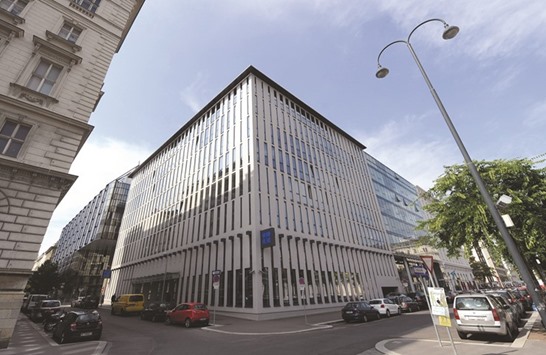Saudi Arabia, Opec’s biggest producer, offered to cut its oil output to January levels, according to Algeria’s energy minister, as the group’s members seek ways to stabilise crude prices at talks this week in Algiers.
The oil market is in a “much more critical” state than when the Organisation of Petroleum Exporting Countries last met three months ago, and its members must seek ways to shore up crude, possibly by freezing or trimming production, Noureddine Boutarfa, said yesterday in an interview. Aside from the Saudi Arabia, producers have made additional proposals, he said later at a news conference, without giving details. Opec ministers plan talks in the Algerian capital on September 28.
“Saudi Arabia is ready to freeze production at the January level,” Boutarfa said, calling the offer “an interesting step.” Saudi Arabia pumped a record 10.69mn bpd in August compared with 10.2mn in January, data compiled by Bloomberg show. Fellow Opec member Algeria wants the group to cut its collective output by 1mn bpd, Boutarfa said.
Crude prices, which have dropped more than half from their 2014 peak amid a global supply glut, rebounded last month on speculation that Opec and Russia might revive a pact to limit production. Prices have since cooled, and benchmark Brent crude futures fell 3.7% to $45.89 a barrel on Friday. A reasonable price for Algeria would be a range of $50 to $60 a barrel, Boutarfa said.
More than 800,000 bpd of additional crude is flooding into the global market this month compared with August as Russia pumps at an all-time high and Libya and Nigeria restore disrupted supplies, according to statements from their ministry officials in those nations. The surplus will last for longer than previously thought, persisting into late 2017 as demand growth slumps and supply proves resilient, the International Energy Agency said. Tumbling crude has put financial pressure on Opec members from Saudi Arabia to Gabon.
While Saudi Arabia signalled last week that the Algiers meeting will be consultative and unlikely to reach a firm decision, Boutarfa’s comments suggest Opec’s leading member may be willing to work toward the group’s first production curbs since the organisation let its members produce at will in late 2014, causing prices to plunge. Opec meets again in Vienna in November.
“The situation since the last meeting in June has worsened, the situation is much more critical,” said Boutarfa, who’s been involved in talks with Saudi Arabia and other members in the run-up to the meeting. “So it’s important to see what measures can be adopted in the short term and very short term to find a solution to this situation that isn’t helping any Opec country.”
Saudi Arabia and Iran did not reach an agreement after two days of preparatory talks in Vienna, including a Saudi offer to pump less crude if Iran caps output at current levels, according to two people familiar with the negotiations. Saudi Arabia doesn’t anticipate any formal decision on supply in Algiers, a delegate familiar with its policy said.
The main difference between the Algiers talks and producers’ failed attempt to agree on a freeze in April is that Iran will be present for this week’s discussions, Boutarfa said. Iran is more concerned with its market share than with actual output levels, he said.
Opec’s talks in Algiers will be informal but can be converted into an extraordinary meeting, which could result in a decision by the group, Boutarfa said.

A general view of the Opec headquarters in Vienna, Austria. Saudi Arabia, Opec’s biggest producer, offered to cut its oil output to January levels, according to Algeria’s energy minister, as the group’s members seek ways to stabilise crude prices at talks this week in Algiers.
